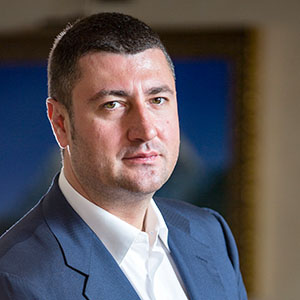With highly arable land, increased trade and harmonization with the EU, and a commitment to technological improvement, Ukraine is a hidden gem in the European agricultural sector
In a country that produces double the amount of foodstuffs it consumes and where every third dollar comes from agricultural exports, Ukraine is becoming an increasingly critical link in the global food chain. With over 42 million hectares of agricultural land, Ukraine is already one of the world’s top-ten food producers, and new legislation combined with the introduction of modern technologies and practices are sowing the seeds for the sector’s sustained growth.
“Over the next 10 years Ukraine can easily double its output; it can triple its grain exports, or better yet, convert a lot of grain into high value-added products,” said Oleg Bakhmatyuk, founder and chairman of Ukrlandfarming (ULF), Ukraine’s top agro-industrial corporation.

In a country that produces double the amount of foodstuffs it consumes and where every third dollar comes from agricultural exports, Ukraine is becoming an increasingly critical link in the global food chain. With over 42 million hectares of agricultural land, Ukraine is already one of the world’s top-ten food producers, and new legislation combined with the introduction of modern technologies and practices are sowing the seeds for the sector’s sustained growth.
“Over the next 10 years Ukraine can easily double its output; it can triple its grain exports, or better yet, convert a lot of grain into high value-added products,” said Oleg Bakhmatyuk, founder and chairman of Ukrlandfarming (ULF), Ukraine’s top agro-industrial corporation.
Ukraine possesses approximately 30 percent of the world’s chernozem, a highly fertile black soil. If fully developed, Ukraine has the potential to feed one billion people, according to Andreas Lier, president of the German-Ukrainian Chamber of Commerce (AHK Ukraine). “If you consider that the world is growing each year by 80 million people and losing arable land equivalent to the size of Mexico, in the next 20 years the black earth here will be extremely valuable,” said Lier.
These figures cause experts to think this potential control over such a significant portion of the global food supply will become increasingly important from both an economic and political perspective. “Food security is a very powerful tool and a source of influence when we are talking about regions like the Middle East or North Africa. This is where Ukraine could come into play, providing a value proposition to leading global financiers and institutions,” said Bakhmatyuk.
Germany was early to recognize the country’s agricultural potential and has invested in the sector since the country’s independence in 1991. Thanks to the Deep and Comprehensive Free Trade Area agreement (DCFTA) signed with the EU in 2016, Germany and the rest of Europe have increasingly been capitalizing on Ukraine’s high-quality agricultural products, while European technology has been made more available to boost Ukrainian crop yields and efficiency. According to Ukraine’s minister of Agrarian Policy and Food, German agricultural equipment is one of Ukraine’s most widely imported products.
As the country moves its agricultural model to a more industrial one, opportunities abound for foreign investors.
“This could actually become the battlefield for very healthy competition between the US and Germany to be the early bird who eats the worm. And by investing in Ukraine, they would acquire a fair amount of control over the commodity flows to important markets” said Bakhmatyuk.